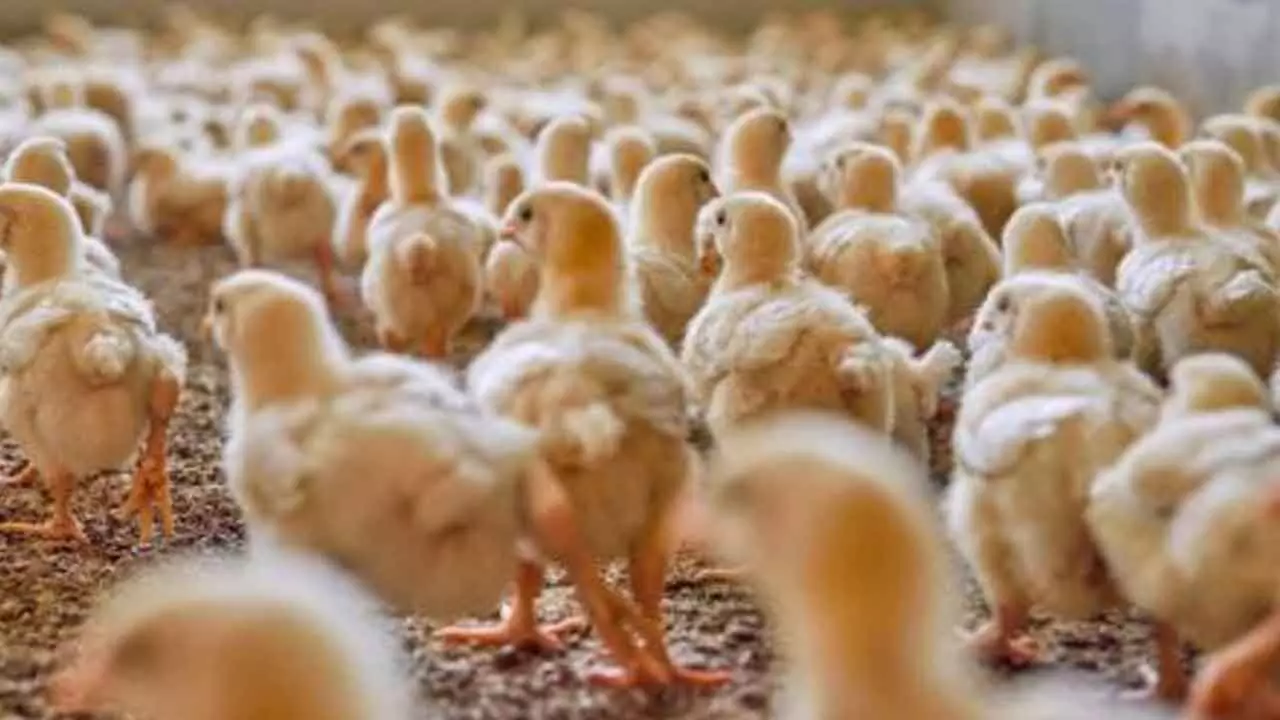Bird Flu Crisis Hits Andhra Pradesh, Poultry Industry in Turmoil
Bird flu outbreak in Andhra Pradesh devastates poultry farms, leading to huge losses. Authorities implement containment measures as consumer fears rise.
image for illustrative purpose

The poultry sector in Andhra Pradesh is facing severe losses due to the spread of bird flu, with authorities under scrutiny for their delayed response. The outbreak, which began in December 2024, has led to a significant decline in poultry sales and rising concerns among consumers, particularly in the West Godavari region.
Over the past two months, a large number of chickens have died across the state, particularly in the Godavari districts, where poultry farming is a major industry. Farmers and traders report that a lack of timely intervention by the Animal Husbandry Department has worsened the situation. Despite early signs of illness among chickens, authorities failed to conduct proper tests, allowing the virus to spread unchecked.
The winter season, considered ideal for poultry farming due to rapid weight gain in broilers, turned disastrous as mass poultry deaths were reported. In December, chickens were buried without confirming the exact cause of death, and no preventive measures were taken. The virus has since spread from poultry farms to other districts, including Khammam and Kothagudem. By early February, lakhs of birds had died, leading to massive losses for farmers.
West Godavari, a key hub for poultry production, has been severely affected. The district typically sells around 20,000 tons of broiler meat per week, with another 15,000 tons consumed from farm-raised chickens. However, the fear of infection has led to a drastic drop in demand. Consumers are hesitant to buy chicken, despite assurances that properly cooked poultry is safe to eat.
The outbreak in Badampudi village, Eluru district, has heightened concerns. With confirmed cases in multiple poultry farms, authorities have implemented biosecurity measures in affected zones. However, traders and farmers argue that these actions came too late, leading to widespread financial distress in the industry.
Officials in Eluru and West Godavari districts have denied rumors that bird flu has spread to humans. Eluru Collector K. Vetri Selvi urged the public not to believe false claims and assured that containment measures are in place. West Godavari District Collector Naga Rani confirmed that infected poultry is being disposed of scientifically.
State Agriculture and Animal Husbandry Minister Kinjarapu Atchannaidu stated that the government is actively monitoring the situation. He revealed that Chief Minister Nara Chandrababu Naidu has been in discussion with officials from the Union Ministry of Animal Husbandry and scientists from the National Institute of High Security Animal Diseases in Bhopal. Central teams have already arrived to assess the situation, and additional experts are expected to visit the affected areas.
Atchannaidu highlighted that there is no reason for public panic, urging consumers to rely on verified information. He warned against the spread of misinformation, stating that strict action would be taken against those responsible for creating unnecessary fear.
Dr. T. Damodar Naidu, Director of the State Animal Husbandry Department, attributed the outbreak to migratory birds, particularly Siberian species known to frequent water bodies in the region. He confirmed that affected areas have been classified as red zones, with culling operations underway.
According to officials, approximately 14,000 chickens have been culled so far, with 340 eggs destroyed to prevent further contamination. Plans are in place to eliminate an estimated 1.40 lakh birds in affected farms. Authorities are also enforcing strict biosecurity measures, including movement restrictions in infected zones.
With containment measures now in effect, the government is aiming to curb further spread. However, poultry farmers remain concerned about recovering from financial losses, as demand for poultry products continues to decline.

